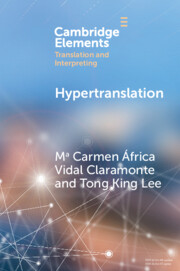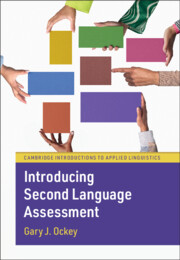Refine search
Actions for selected content:
17 results
GenAI job scheduling system for solving a flexible job shop scheduling problem
-
- Article
-
- You have access
- Open access
- HTML
- Export citation
6 - Big Artificial Intelligence
-
- Book:
- Big Data in the Psychological Sciences
- Published online:
- 23 October 2025
- Print publication:
- 23 October 2025, pp 92-116
-
- Chapter
- Export citation
When Siri becomes a deposit broker
-
- Journal:
- Finance and Society ,
- Published online by Cambridge University Press:
- 15 October 2025, pp. 1-17
-
- Article
-
- You have access
- Open access
- HTML
- Export citation
7 - Global Challenges and the Frontier of Insurability
-
- Book:
- Insuring States in an Uncertain World
- Published online:
- 13 August 2025
- Print publication:
- 18 September 2025, pp 170-202
-
- Chapter
- Export citation
Enhancing computer-aided design with deep learning frameworks: a literature review
-
- Journal:
- Proceedings of the Design Society / Volume 5 / August 2025
- Published online by Cambridge University Press:
- 27 August 2025, pp. 1515-1524
-
- Article
-
- You have access
- Open access
- HTML
- Export citation
A question of alignment – AI, GenAI and applied linguistics
-
- Journal:
- Annual Review of Applied Linguistics / Volume 45 / March 2025
- Published online by Cambridge University Press:
- 24 July 2025, pp. 315-336
-
- Article
-
- You have access
- Open access
- HTML
- Export citation
AI-driven FMEA: integration of large language models for faster and more accurate risk analysis
-
- Journal:
- Design Science / Volume 11 / 2025
- Published online by Cambridge University Press:
- 14 April 2025, e10
-
- Article
-
- You have access
- Open access
- HTML
- Export citation
A large language model based data generation framework to improve mild cognitive impairment detection sensitivity
-
- Journal:
- Data & Policy / Volume 7 / 2025
- Published online by Cambridge University Press:
- 26 March 2025, e33
-
- Article
-
- You have access
- Open access
- HTML
- Export citation
Expanding the paradigm: Generative artificial intelligence and U.S. privacy norms
- Part of
-
- Journal:
- Cambridge Forum on AI: Law and Governance / Volume 1 / 2025
- Published online by Cambridge University Press:
- 07 March 2025, e16
-
- Article
-
- You have access
- Open access
- HTML
- Export citation
EU rules of origin, signalling and the potential erosion of the art market through generative artificial intelligence
- Part of
-
- Journal:
- Cambridge Forum on AI: Law and Governance / Volume 1 / 2025
- Published online by Cambridge University Press:
- 06 January 2025, e4
-
- Article
-
- You have access
- Open access
- HTML
- Export citation
ChatGPT in foreign language lesson plan creation: Trends, variability, and historical biases
-
- Article
-
- You have access
- Open access
- HTML
- Export citation

Hypertranslation
-
- Published online:
- 29 November 2024
- Print publication:
- 16 January 2025
-
- Element
- Export citation

Introducing Second Language Assessment
-
- Published online:
- 13 November 2024
- Print publication:
- 07 November 2024
-
- Textbook
- Export citation
Chapter 7 - Analyzing Dichotomously Scored Items for Selecting the Most Proficient Test Takers
- from Part III - Right or Wrong
-
- Book:
- Introducing Second Language Assessment
- Published online:
- 13 November 2024
- Print publication:
- 07 November 2024, pp 95-118
-
- Chapter
- Export citation
Chapter 5 - Language Assessment Consistency: Uniformity and Reliability
- from Part II - Gaining Knowledge of Language Assessment Principles
-
- Book:
- Introducing Second Language Assessment
- Published online:
- 13 November 2024
- Print publication:
- 07 November 2024, pp 65-78
-
- Chapter
- Export citation
Chapter 10 - Being Creative: Types and Delivery of Performance Assessments
- from Part IV - Judging Test Taker Performances
-
- Book:
- Introducing Second Language Assessment
- Published online:
- 13 November 2024
- Print publication:
- 07 November 2024, pp 158-176
-
- Chapter
- Export citation
Artificial intelligence and increasing misinformation
-
- Journal:
- The British Journal of Psychiatry / Volume 224 / Issue 2 / February 2024
- Published online by Cambridge University Press:
- 26 October 2023, pp. 33-35
- Print publication:
- February 2024
-
- Article
-
- You have access
- HTML
- Export citation
